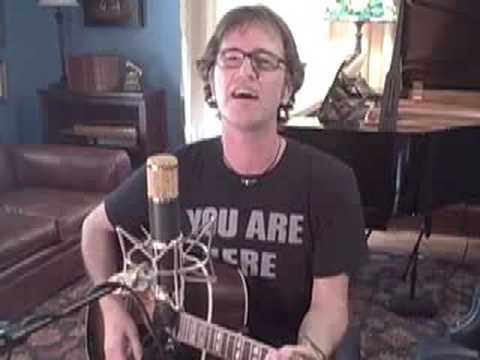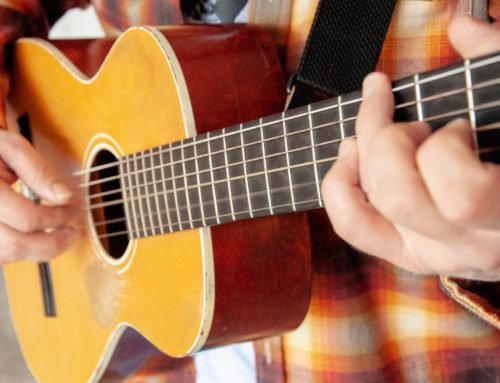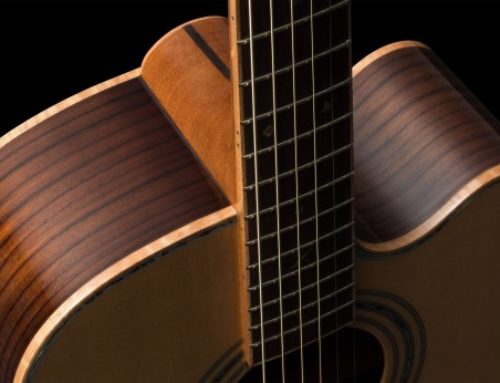by Dan Wilson
When I was a very little kid my parents took me to swim lessons. On my first day, standing at the end of the diving board, waiting to jump in, I froze with fear. I couldn’t climb down. I couldn’t jump. What happened next was terrible but also helpful. My big, blonde, Norwegian-American swim teacher strode up onto the diving board, wrapped me in her arms, and jumped int o the pool with me. My eyes were open as we went under, and I can still remember rising through the blue and popping up to the surface with her. I was fine! There was nothing to be afraid of. I enjoyed the water ever after. So many musicians I know spend their careers standing at the top of the diving board, waiting to jump in. I wish I could wrap them all up in my arms and jump in with them. Songwriters, here are some good ways to get yourself into the pool.
1. Work on Your Music Every Day, Inspired or Not
Once during my time as an art student, I complained to my instructor, Tina Stack, that I wasn’t inspired to work that day, so I was going to knock off early. She said something that surprised me and that has helped me ever since: “You’re better off staying and working, whether you’re inspired or not. The muse doesn’t always visit. But when she does, you need to be in your studio, working. If the muse visits your studio when you’re at the bar, she can’t do you any good.” There was something so liberating about the idea that I didn’t need to be inspired every minute of the day to be a real artist— that I could get meaningful work done whether I felt inspired or not. And even though I wasn’t inspired at that moment, inspiration would eventually come. This turned out to be completely true. Over time, I have learned that most great painters paint everyday, most novelists write every day, and most great musicians make music every day, whether or not they’re “feeling it.”
2. Have an Artistic Practice
Prince has a great song called “There Is Joy in Repetition.” Is there something about your artistic practice that you can do every day? At the same time every day, even? It’s challenging to arrange your life so that you can have an artistic practice, but it’s not impossible, and it’s worth the effort. Every weekday morning, after getting the kids off to school, I try to play the piano for half an hour. I play Broadway standards and jazz hits from the middle of the last century: Duke Ellington, Harold Arlen, Richard Rodgers, Cole Porter, Wayne Shorter, Charles Mingus, and Leonard Bernstein. It’s a joy for me, partly because I like the sense of a simple routine, partly because reading music is an interesting challenge, and partly because I know I’m loading up my imagination with great melodies. After I’m done with the greats, I start working on my own music. The excitement of Ellington carries me through, even when my own song might not be quite figured out.
Experimenting with new artistic practices can be a fun game in itself. Among the most fruitful songwriting times I’ve ever had were two stretches when I wrote a song a day, every day, for a month. The first time I did it was when I was writing material for Semisonic’s Feeling Strangely Fine album. I got the song-a-day idea from a fellow songwriter, and it seemed interesting. The rules were that you had to finish the song, from beginning to end, every note of melody and every word of lyrics, by the end of that day. Importantly, it didn’t have to be good; it just had to be done. Then the next day, you would start a new one. For the first two weeks, it felt weird and artificial. The stuff I was writing all seemed a little forced. I nearly gave up the experiment. But then suddenly I turned a corner, and writing a song became really easy. I found myself continuously transforming small moments from everyday life into metaphors, stealing remarks my friends made
3 Let Your Audience Teach You
The best thing you can do to improve your songs is to play them for people, even if you don’t feel like they are “finished” or “good enough” or “original enough.” Don’t wait for some magical “readiness” to descend upon you. You are ready now. Open mic. Church talent show. A party or gathering with friends. When you play your song for people, you get the amazing feedback effect of an audience. It’s like a magical kind of critique that needs no words. You will learn from the audience’s reaction which songs are good and which need work. You will learn which of your “tricks” are worth using over and over (of course you’ll use the same tricks over and over—we all do) and which “trick” isn’t really a trick at all. And you’ll start to get yourself hooked on playing your songs for people, which is the biggest trick of all. Another great hidden benefit of getting in front of audiences is that you’re way more likely to meet other musicians that way. Musicians are always the first group of people to discover a new songwriter or player. So you might find that during your first year of shows, most of the people who show up are other musicians. This is a good thing, because not only are other musicians good cheerleaders for great music, but they’re also going to be crucial to your own musical efforts. When I’m at an impasse in the studio, when I can’t figure out a great next verse for a song, when I want to make a gig more interesting and entertaining, I find the most effective trick is getting another musician involved.
4. Hang Out With Musicians, Be a Friend, and Help Somebody
This is a life you’re trying to create here, an artist’s life. It’s not a windfall, or a payday, or a brand. Your biggest and most complex creative project is the creation of an artist’s life. And one thing that makes an artist’s life worth living is the wonderful company of other artists. Musicians are the funniest, silliest, most generous, spontaneous, and overly dramatic tribe of people in the world. By being a musician, you already have earned the amazing right to hang out and have a beer with them, to help them move house, to date them, and to bail them out when they’re in trouble. Don’t forget about these things, because they’re almost the best part. A teacher of mine, Ron Jones, says: “Work a lot, yes; work six days and nights a week, but save one day or night to hang out with musicians.”
5. Working on Music You
Love Is a Long-Term Investment. Working on Music You Hate is a Short-Term Hedge. Go for the Long Haul. Artist Tom Sachs says, “The only reward for work, is more work.” It’s hard to overemphasize how true this is. Nobody in this gig wants to retire at age 35; I don’t care what you say. If you’re a real musician, you’ll be stuck with this inconvenient obsession for the rest of your life. Which means most of your time will be spent working, and very little time will be left for relaxing on the yacht that you buy with your royalties. If you succeed, the world will flood you with requests for more of whatever music has brought you the most success. So if you’re doing music you love, in a style and a direction that you love, your reward will eventually be this: the chance to do more music that you love. If you’re doing music that you despise, just for the money, your reward will be to do more of the same music you despise. I have friends who study the Top 10 and try to cop the sounds and styles of the Top 10. These friends don’t even enjoy the sounds and styles of the Top 10; they just think that by studying this music, they’ll find their own paths to success. What a nightmare! I say, study greatness! What music do you love most deeply? What really moves you? Study that with great passion, and try to follow that music. Then one day the world will be asking you to make more of what you love.
(Reprinted with permission from Keyboard Magazine)
Acclaimed singer and songwriter Dan Wilson wrote Adele’s #1 song “Someone Like You” and Co-wrote the song “Not Ready to Make Nice”, the 2007 Grammy Award for Song of the Year for the Dixie Chicks. He has been a frequent presence atop the pop charts since his 1998 song with Semisonic “Closing Time” rocketed to number one. Wilson has written songs with artists including Adele, Pink, Nas, Taylor Swift, John Legend and others. His new solo album, Love Without Fear, is out now. Find out more at danwilsonmusic.com
For more information on the IAMA (International Acoustic Music Awards), please go to: http://inacoustic.com




